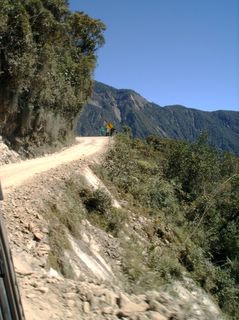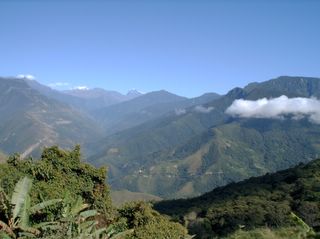What is a community network?
Interesting debate today that seemed to be going on in several different places.
Define a community network
You'd think it'd be easy, but there is a strange tendency to drift towards a 'them' and 'us' scenario. Them are those who do it for money. Us are the ones struggling to keep our heads above water as we do far too much for 'the community' and not enough to protect ourselves and thrive.
Reminds me of that Quaker poem I can never quite remember about if there's peace in the heart, there's peace in the home, and the ripples spread outwards so you reach peace in the world. If you make sure you are OK, then you can afford to help others around you is one way of looking at it, I think. I'm not very good at this I know because the money side of life isn't of enough concern. I'd rather have mega experiences than be rich and bored rigid trying to work out what to do with the wonga.
No project should be running entirely on volunteer energy. As I keep saying to myself "Volunteers-it'll end in tears" We keep seeing it. There are not for profits who think they should do everything for free and can't reach a surplus or sustainability. And for many this is where the yogurt knitting image comes from, that social enterprises sometimes don't show balance sheets that make sense to business people or our current culture where money is apparently everything for many if not most people.
So, back to this defining community networks. I can't name names as it wouldn't be fair but there are a couple of well-known CAN operators who skewed the results on the Springing up all over survey because they've got several hundred people connected into quite a few of their networks. They've extended way beyond their own patch, because they are in business doing this. Are they community network operators? The communities quite often don't own the networks, but in many cases they didn't want to. They just wanted someone to come in and give them a decent broadband connection. And it has been done.
There are others where the company running the network is owned by its members, who have elected people to take charge of the daily running of the network etc. All profits are spent on extending the network, offering new services etc. Is that a community network? What about all the people in the community who are not members and who may think that profits should be ploughed into other community projects which need help like the playschool or youth club? Is involvement by a subsection of the community enough to say that a community network is owned and run by the community even when it is only a small percentage of that community?
What if there is only one person, a lone ranger, who hasn't managed to persuade anyone else to get involved yet? Or maybe doesn't want the grief of trying to explain to them how it al works? If contributions are made to worthy local causes but the profits are spent as the sole proprietor sees fit, ie to prop up their ailing business because they are too busy climbing on roofs fixing antennas to deal with their clients, is that a community network?
Or is a community network one which has had large amounts of public funding and connected the local council offices and put a kiosk in the swimming pool? Can BT say they run community networks because they occasionally give hard up communities a computer and an ADSL connection?
Can we even define 'community'? Because I think until everyone is clear what a community is, who or whether anyone owns it, runs it, where its boundaries are, who makes sure that everyone has blue fingers, who assesses the impact of each and every one of our actions to benefit or detriment of that community, we are a bit knackered trying to define what a CAN is. Personally.



